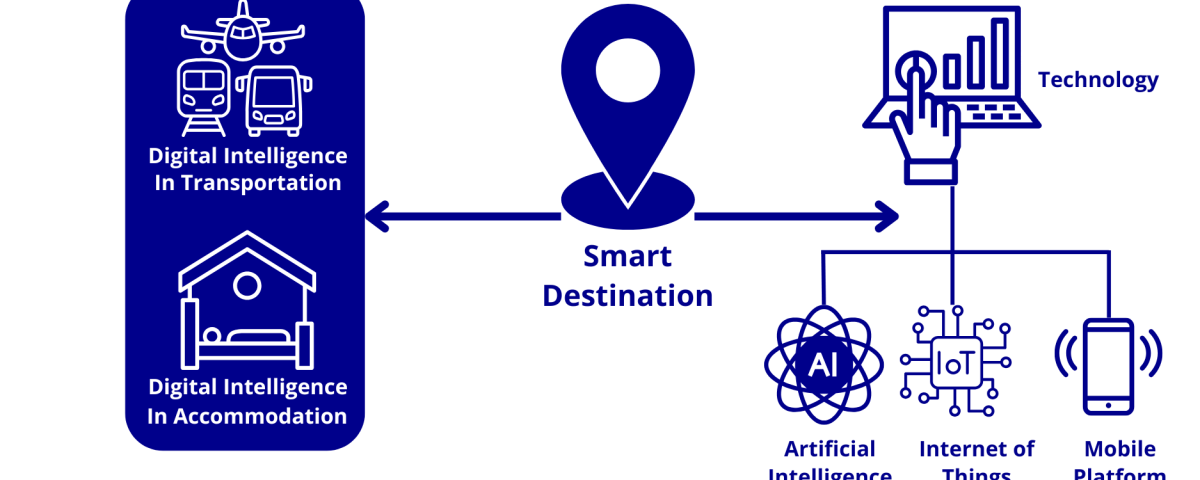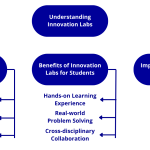
Turning Ideas into Impact: EIIET’s Innovation Labs
May 26, 2025Digital Tourism Starts Here: EIIET’s Role in Shaping Smart Destinations
Tourism has advanced significantly with the help of the Internet. From paper maps, guidebooks and word of mouth to online reviews and GPS navigation. We have entered the era of smart tourism, a digitally driven, data-powered, and user-centric evolution of travel. Smart tourism is about utilising the latest technologies, such as AI, blockchain, and big data, to create a more personalised, efficient, and sustainable travel experience. This is where the European Institute of Innovation, Entrepreneurship, and Technology (EIIET) leads the charge in shaping the infrastructure for a new era of travel.
Understanding Smart Destinations
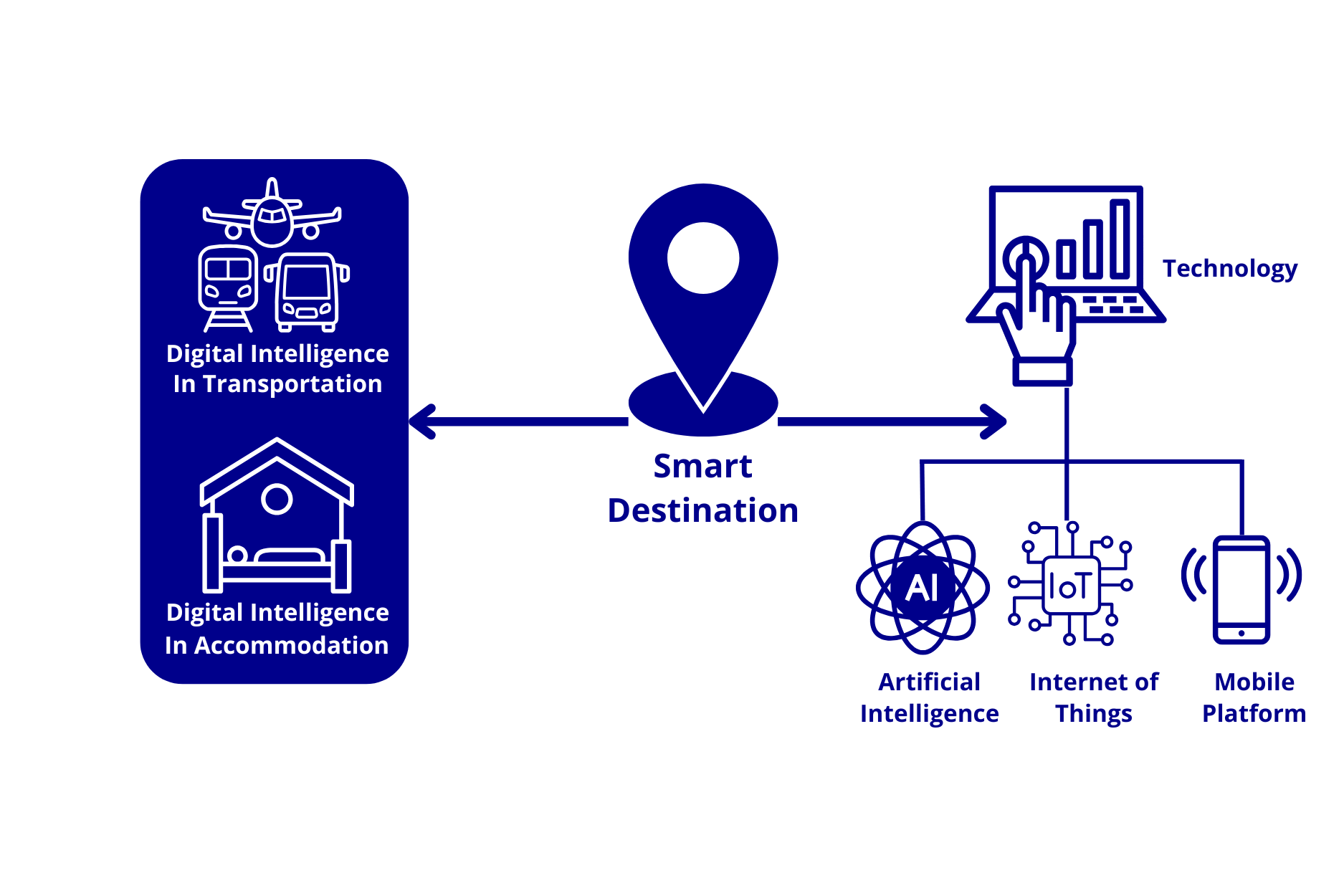
What Makes a Destination Smart
A smart destination is a place that utilises advanced technology and interconnected systems to enhance the quality of life for residents, improve the visitor experience, and ensure sustainability. So, just because a destination has free WI-FI and a flashy website, it doesn’t make it a smart destination.
To truly be a smart destination, digital intelligence should be applied to each layer of the tourism ecosystem, encompassing transportation, accommodation, attractions, and services. The aim is to make tourism more personalised, efficient, and sustainable. Smart destinations learn from the data and adapt quickly to visitors’ behaviours, creating seamless experiences through both physical and digital interactions.
Technology’s Role in Enhancing Visitor Experience
Some vital parts of technology that are used in Smart destinations:
- AI (Artificial Intelligence): AI is used in chatbots and virtual assistants for instant support to travellers in multiple languages. It also recommends a personalised schedule based on user behaviour, preferences or weather.
- IoT (Internet of Things): IoT devices can help manage foot traffic and reduce congestion at popular attractions. It creates a responsive environment that adapts to visitor needs.
- Mobile Platform: Smartphones have become an essential part of human life, so smart destinations utilise mobile applications and web platforms to provide digital maps and AR-enhanced tours, as well as real-time updates on events and dining.
EIIET's Curriculum and Its Impacts
Where Innovation Meets Education
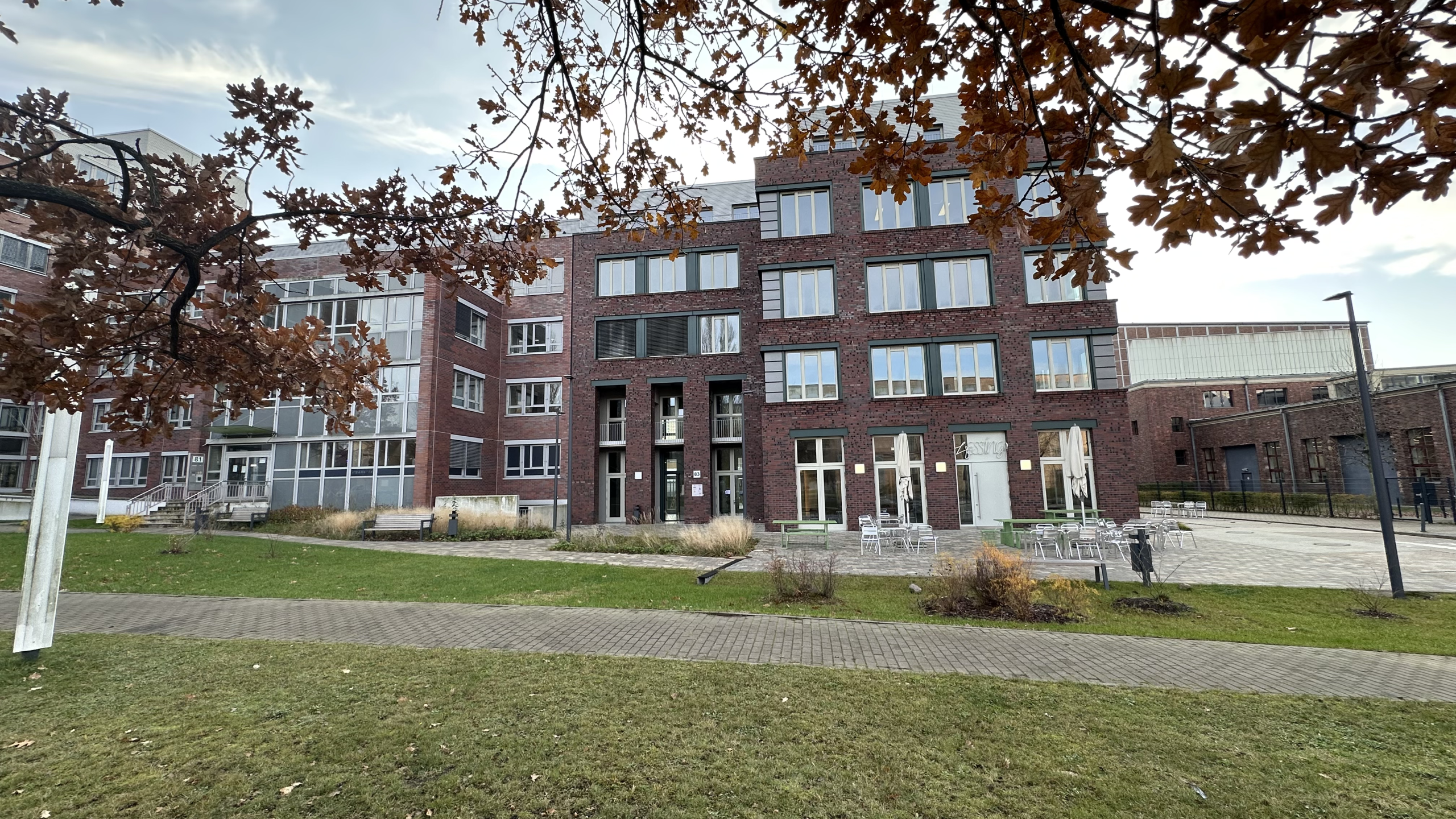
The European Institute of Innovation, Entrepreneurship, and Technology (EIIET) is situated in Berlin, a city renowned for its dynamic startup ecosystems. EIIET offers a programme that uses both theory and practical application to prepare students for the developing landscape of digital tourism.
EIIET offers programmes such as B.A. and M.A. in Tourism & Recreation, which involve participation in real-world projects, internships, and collaborative research that bridges the gap between theory and practice.
Interdisciplinary Learning in Action
EIIET’s approach combines tourism, technology and entrepreneurship with the fields of data science and environmental studies. This education ensures that students, upon graduation, are not only tourism experts but also technologically proficient. For, students may learn to apply AI for dynamic pricing in hotels. Use IoT for energy-efficient tourism infrastructure or develop ideas for sustainable tourism management.
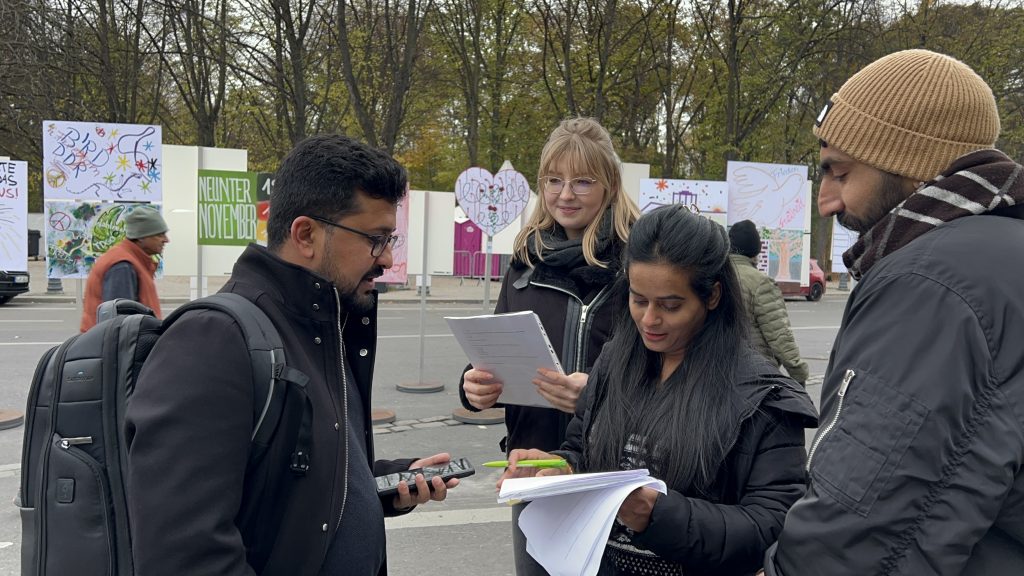
From Theory to Practice: Applied Tourism Tech Projects
EIIET motivates students to apply their knowledge through hands-on projects that address real-world tourism problems. EIIET suggests students engage in initiatives like:
- Designing sustainable tourism plans using data analytics to maintain visitor numbers and environmental impact.
- Creating VR tours to promote lesser-known destinations.
The Future of Digital Tourism
Personalized Travel Experiences
The era of general travel plan is fading. Advanced AI and machine learning technologies enable travel platforms to analyse user preferences, behavioural patterns, and real-time data, such as mood and weather, to craft tailored travel experiences. These platforms deliver dynamic, individualized plans that enhance traveller satisfaction.
Key Technologies:
- AI-driven travel planners
- Smart hotel rooms with adaptive lighting, temperature, and media based on guest profiles
- Voice-activated travel assistants for seamless trip planning
Immersive Technologies: AR and VR
Augmented reality (AR) and virtual reality (VR) are transforming how travellers research and experience destinations. From virtual tours of historical sites to previews of accommodations, these technologies offer immersive and interactive alternatives to traditional travel planning.
Future Developments:
- Virtual tourism as a sustainable travel option
- Hybrid (physical and digital) tours blending physical and virtual elements
Smart Destinations and IoT Integration
Smart destinations use Internet of Things (IoT) sensors for real-time data to optimize visitor experiences, manage crowd flow, and promote sustainability. These systems provide travellers with real-time recommendations, such as optimal visiting times or alternative attractions to avoid overcrowding.
Future Innovations:
- Facial recognition for streamlined check-in/check-out processes
- Intelligent crowd management and mobility routing
- Environmental monitoring to protect high-traffic destinations
Sustainable and Responsible Digital Travel
Digital tools are addressing tourism rising sustainability concerns by enabling travellers to make eco-conscious choices. Applications now offer features like carbon footprint tracking, eco-friendly accommodation recommendations, and low-impact activity suggestions.
Sustainable Technologies:
- Blockchain for transparent eco-certification of travel services
- AI-optimized travel routes to minimize emissions
- Virtual tourism as a low-impact alternative to physical travel
Partnerships and Industry Collaboration
Learning Beyond the Classroom
EIIET maintains partnerships with industry leaders and startups in the tourism and technology sectors. These collaborations offer students the opportunity to work on real-world problems and intern with leading companies. For instance, EIIET’s partnerships with the University of Tourism and Hotel Management (WSTiH) and organisations like Pearson and Oxford AQA for its International Advanced-Level Programme ensure that students gain exposure to cutting-edge industry practices.
Key Outcomes of These Collaborations:
- Internship placements with tourism tech startups and innovation hubs
- Joint research projects on smart tourism, AI, and data-driven travel solutions
- Guest lectures and industry panels featuring executives from leading tourism brands
How EIIET Connects Students with Tourism Innovators
EIIET bridges the gap between education and industry through internships and research partnerships. These connections often lead to career opportunities in innovative destination management, digital tourism startups and sustainable travel initiatives.
EIIET as a Launchpad for Digital Tourism Careers
EIIET is not just an educational institution; it is a Launchpad for a career in digital tourism. By combining tourism management with digital innovation, EIIET prepares students to lead the development of smart destinations that are sustainable, efficient and visitor-friendly.
As the world transforms, institutions like EIIET will play a crucial role in ensuring that tourism evolves to benefit both people and the planet. For students passionate about combining tourism with technology, EIIET offers the perfect starting point to shape the future of smart travel.

